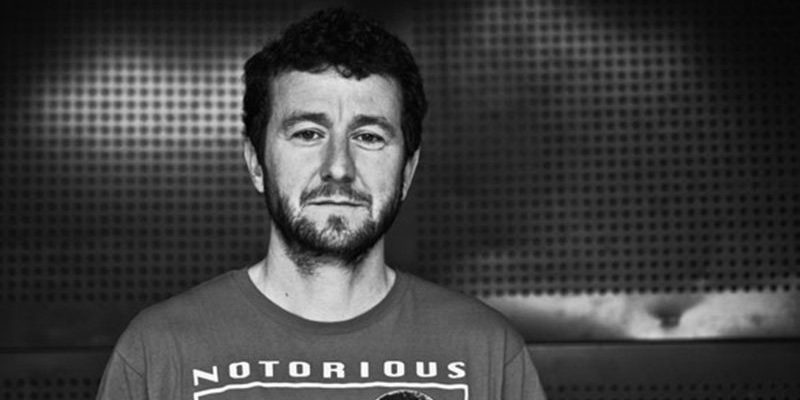A colourful mosaic of life in the underprivileged Parisian suburbs of Aulnay-sous-Bois, Olivier Babinet’s Swagger gives voice to the anxieties and aspirations of schoolchildren whose youthful idealism persists in spite of barriers stemming from issues of class, culture, race and religion.
With Swagger now showing on FilmDoo as part of this year’s MyFrenchFilmFestival, we got in contact with Babinet to discuss the experiences and ideas that went into making this creative and timely documentary.
So how did this project come about?
It was a state association and a teacher who proposed that I go into this school to teach the kids how to make movies. I had one class of kids to write and direct movies, and we did four short films. After that, the state department proposed that I stayed on as an artistic resident. So I stayed approximately two years in that school just working with the kids. And after those two years, I decided to make a movie about them.
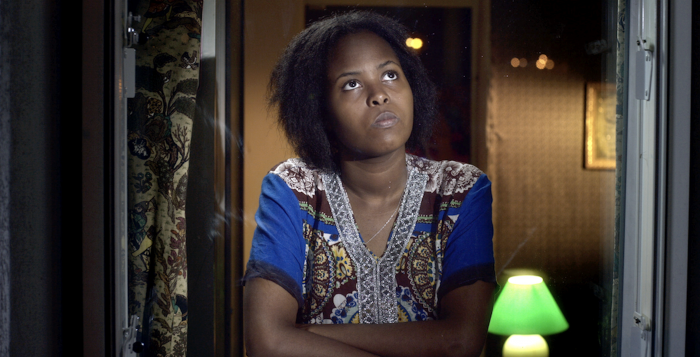
I had a friendship with some kids. I was eating at the canteen with them and I was watching, watching, watching everybody. It reminded me of my own years as a teenager and I was really touched to see how they were full of ambitions and dreams – and they were quite calm. At the same age as them, I was really angry. I was doing stupid things in the streets at night – breaking cars and stupid things like that – and those kids were not like that. They were not ruining cars every day as you might imagine when you see the news on TV or on Fox News.
You know the situation in France – and now, unfortunately, in England too – with the terrorist attacks. So regularly those kinds of kids were painted with the figures, a lot of amalgamation from this French news. So that’s why I decided to do this movie and to give them the mic. That was the most important thing for me: to let them talk about themselves and not watch them as an adult or a teacher or a cop or a superior. I really wanted to be on the same level as them.
Some of the scenes with the children are heavily choreographed, like the sequence in the workshop where they’re all moving like robots.
I wrote the script to Swagger by myself, without participation from the kids. I was just trying to always have ideas from what they said in the interviews. I don’t know where the workshop scene came from. I love science fiction. I knew all the parts of the school because I shot eight short movies there. After that, I did a music video and after that I did Swagger, so I knew this strange room where they were learning technology.
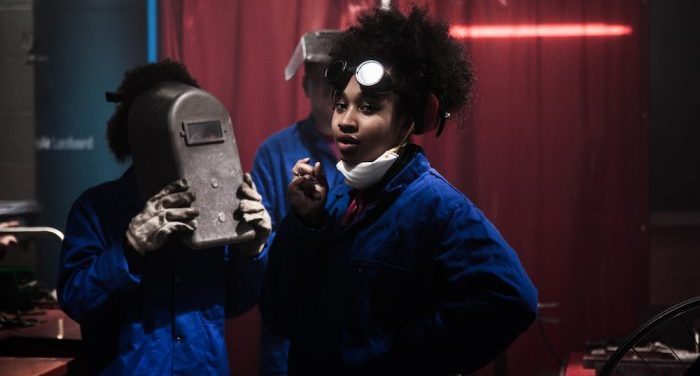
When I saw the masks, they reminded me of The Day the Earth Stood Still, the old movie from the ’50s with the Bernard Hermann music that I love very much. I thought about robots and the way the kids are dreaming about many things but maybe in the end are going to do a job that they don’t want to do. And sometimes the school put them in the kind of work that they don’t want to do. So that’s why I put Régis, the guy who wants to be a fashion designer, under the mask. During the editing, the editor had the idea to put the sequence where Abou is talking about slavery before this scene with robots, so it’s an allegory of modern slavery.
And this sci-fi element later comes back in a sequence that shows a swarm of drones come to the housing projects.
Yeah. Just the day after the terrorist attack at the Bataclan, I remember the premise came when the drones started flying and the police came with guns.
Speaking of drones, is that how you pulled off those long aerial tracking shots that move from the housing project’s exterior to the rooms of the residents?
The first shot of the movie at night was difficult to do with the drones through the window, because they’re not really stable. So we started from the window. In the editing, we reversed the shot but when we saw it for the first time on the big screen, we saw that all the cars were reversed. So in post, they changed all the lights of the cars. Régis was not in his apartment when we shot his scene with the drones. We had a shot of Régis inside his room with the Steadicam, a beautiful shot with a big camera. So the drone is coming in, and in post they put in the Steadicam shot through the window. It was a complicated sequence.
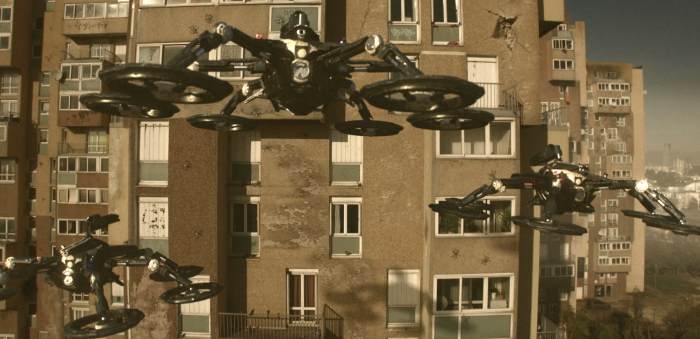
Do you regard Swagger as a political film?
I don’t say that myself but I was trying to change the mentality of people. For me, it was important to do this movie at this really difficult time. French society was broken and politicians were saying ‘Muslims are responsible’ or ‘Romas are responsible’. We were divided. My contribution to politics was maybe to show people how they are the same. Everybody has been a teenager. It doesn’t matter if you grew up in the suburbs in Aulnay-sous-Bois or in Versailles or in London and you were shy or you were popular or you were sporty or not.
One subject that comes up a fair bit in your film is the notion of ‘feeling French’. The phrase ‘French stock’ (Français de souche) is used a lot.
This is really important in the movie. Sometimes people say that these kinds of kids are not proud to be French, are not feeling French, but it’s not true because when these people say ‘French’ they mean ‘white people’. These kids are all feeling French and you can feel that in the movie. There is just one girl, Astan, who says she doesn’t really feel French but she’s the only one who says that – and today she doesn’t say that anymore. She has nothing against white people today.
But yes, it was important to let them talk about that. And me, I’m white, and I was living in Paris, just 5 minutes from the African neighbourhood. But in Aulnay, everybody is black and Arab, and when you are there as a white person, you can feel that. There are a few white people at the school but they are Polish, Russian and Kosovar. So I was feeling like a stranger, and I was a stranger at the beginning. I didn’t grow up there. So that’s why I asked them the question. They talk about white people as strange animals they don’t see around.
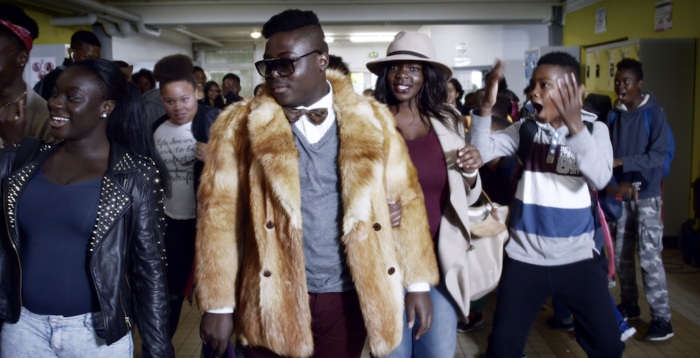
As an outsider to the community, did you feel any initial distrust from the kids?
Maybe. Some of them say that they were making jokes about me. I was working with one class, so little by little we learned to know each other, to work together. One day I changed the school bell so it played music instead. So it was hip-hop, Bernard Hermann music, musicals. It was a day with grey skies and rain, a little bit sad, but everybody was happy because of it. There was dancing in the school, in the corridors. On that day, they discovered that there was a strange guy in the school doing something.
I know that when we shot Swagger and the music video it was really amazing in terms of humanity. Everybody was happy to do it – the kids and the crew. It was funny. It was a lot of work because we were shooting in the school during the holidays – one summer, and one summer after. Because of money problems, we did it in different parts, not at the same time, but it was always really great.
Lastly, you’ve said that you’re now working on another film. Can you tell us more about that?
It’s fiction. I have discovered an old word before we said ‘science fiction’. The word is ‘scientific romance’. My next movie is a scientific romance and it’s the story of Daniel. He is forty-six years old and he is a biologist. He is working on fish in the future. It’s not far away from today, maybe three years. It’s a world where the fish have stopped reproducing. There is only jellyfish in the sea, so humans eat jellyfish. And this guy is trying to understand why there is such sexual dysfunction with the fish. And this guy himself is in a state of depression. He has a lot of problems with women and he hasn’t made love in six years and he really wants to have a kid. He is trying to adopt a kid but he is traumatised with women so he is trying to have a kid alone. So that’s the love story of this guy.
I have read a lot of articles about real problems with the quality of spam, oestrogen in the sea, mutation of aquatic species and mutations of humans too. The base is reality and truth, and from that reality, I’m doing a poetic movie. There are a few robots in the movie and a fish robot. It’s visual and comedic. It’s a mix of genres.

